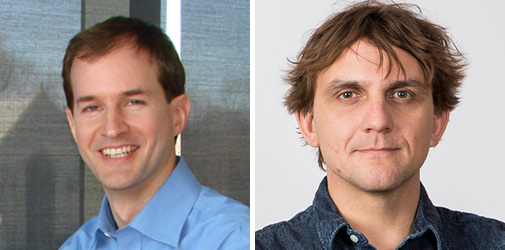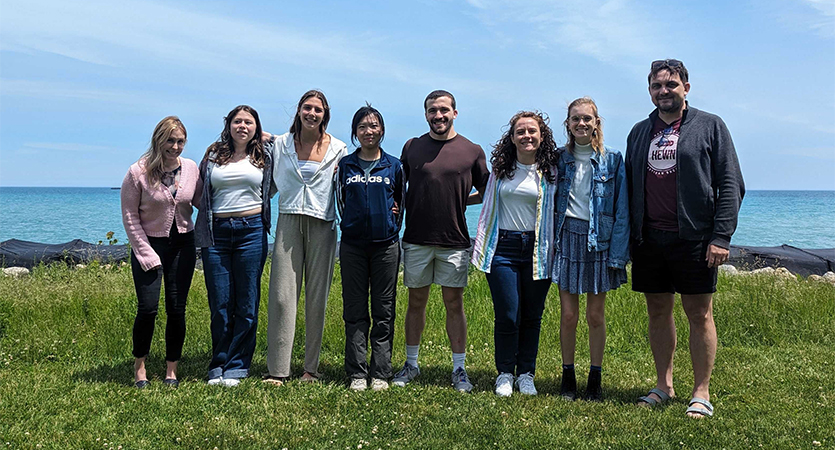International Collaboration
Northwestern and Hamburg scientists look to drive student research and propel efforts to combat climate change
Shuyue Qu can always say she was the first.
A master’s degree student from the University of Hamburg’s Integrated Climate Systems Science (ICSS) program, Qu recently completed a three-month research stay at Northwestern University, becoming the inaugural visiting student researcher in what faculty at both institutions hope evolves into a routine practice propelling science exchange.

“I was happy to be the first participant and grateful I had the opportunity to come to Northwestern and develop my research skills,” said Qu, a native of China.
Empowered by Northwestern Engineering Global Initiatives director Matthew Grayson’s Four Corners program, an ambitious effort to spur collaborative research on sustainability among four leading global universities, as well as support from the Paula M. Trienens Institute for Sustainability and Energy at Northwestern, Qu lived in Evanston and worked alongside Professor Daniel Horton’s Climate Change Research Group.
Via Northwestern’s Buffett Institute for Global Affairs, Horton leads a team of area researchers representing academia, public health, municipalities, and community partners developing a heat vulnerability index for Chicago. As part of that process, Horton has access to various public health data, including death certificate data.
Qu leveraged Horton’s position to secure death records in Chicago from 1993-2022. She then analyzed mortality data and investigated the profound health impacts of heat waves in Chicago over that 30-year period. Her in-progress master’s thesis consists of a comparative analysis of heat vulnerability in Chicago to heat vulnerability in Hamburg, a German city of about 1.8 million residents.
“With increases in the occurrence frequency and severity of heat waves in a warming world, we need to better understand the vulnerabilities of different populations to extreme heat,” said Horton, assistant professor of Earth and planetary sciences at Northwestern’s Weinberg College of Arts and Sciences and (by courtesy) assistant professor of civil and environmental engineering at Northwestern Engineering.

Qu called Horton a “a professional and detailed researcher” who helped sharpen her research skills and her thesis project. In addition to arranging various meetings with the custodian of the Chicago data to understand intricacies and interpretations that would help Qu calculate and reorganize the data, Horton also met with Qu weekly to address project challenges and define priorities.
“Professor Horton was incredibly patient and advised me on how I could sort through problems and find a way forward,” said Qu, who intends to pursue a PhD position after completing her master’s degree. “The entire experience at Northwestern helped me become a better scientist and I am, of course, grateful and happy about that.”
Horton, meanwhile, termed Qu’s visit “a success” and a model for future international collaborations with Hamburg’s renowned ICSS program. He hopes to see more student research exchanges between the two institutions, noting that the Trienens Institute has already pledged its support to the endeavor.
“Collaboration in science, particularly when attempting to solve society’s most challenging problems, is essential, so I certainly see value in continuing our work together,” Horton said. “We are two universities with different strengths and talented students who could benefit from ongoing exchange.”